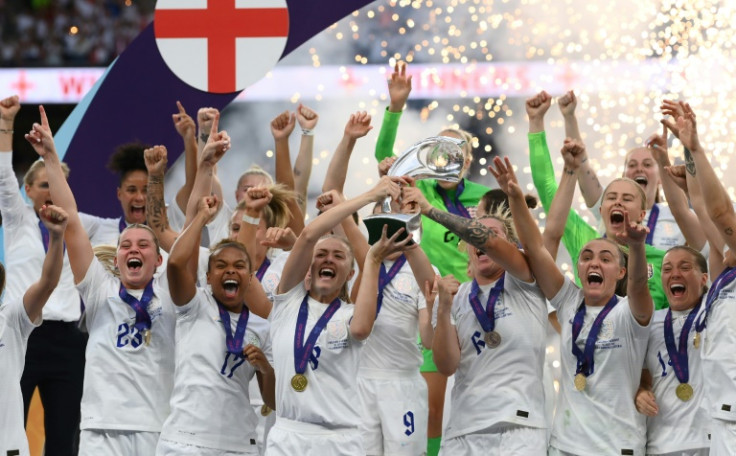How FIFA's Women's Development Programme is supporting women worldwide
FIFA'S Women's Development Programme use a series of 8 projects to increase the participation of women and girls in football worldwide. Today, they continue to provide women and girls with advanced football training workshops, sanitary products, and an education.

Since 1991, FIFA has hosted a Women's World Cup, previously referred to as the Women's World Competition. There are currently more than 180 national teams made up of women around the world. These teams participate internationally and play at a professional level.
The FIFA Women's Development Programme has been designed to provide women and girls with further investment into their football recourses, training, and games. The programme consists of 80 dedicated projects that set out to increase the participation of women and girls in football worldwide.
The projects include the Women's Football Strategy, the Women's Football Campaign, League Development, Club Licensing, Capacity-Building for Administrators, Coach Education Scholarships, Coach Mentorship and the Women in Football Leadership.
The Women's Development Programme states that it aims to "have 60 million women and girls playing football by 2026."
Arijana Demirovic, the Head of FIFA Women's Football Development, recalled that "in order to grow participation in some of our member associations, we have to address their context and understand how best to support them."
Since 2020, the FIFA Women's Development Programme has made for the formation of 60 new teams, in addition to over 1,200 new players in Belarus alone.
The FIFA Women's Development Programme, together with the South Sudan Football Association, continues to work with women and girls in South Sudan. The pilot programme, launched in 2022, not only supports women and girls by making sports and football more accessible, but it is also providing them with education and sanitary products.
The collaborative project was dubbed the "Menstrual Health and Education Project".
In South Sudan, 70% of girls and women don't have access to sanitary pads or tampons, preventing them from playing sports regularly.
— FIFA (@FIFAcom) May 28, 2023
That's why in 2022, FIFA launched the Menstrual Health and Education project to help.#MenstrualHygieneDay pic.twitter.com/ZoQ6z6yXkt
In South Sudan, 70 per cent of women and girls are unable to access hygiene products such as sanitary pads or tampons. The lack of sanitary products makes it challenging for women and girls to attend school or sports practices.
Arijana Demirovic revealed: "When speaking to South Sudan, we understood that apart from having access to sports and football, their girls were facing different challenges. In their particular case, it was related to menstrual hygiene."
"This way we start addressing those girls that are already in football, making sure that they come back to football... We have seen that this is not just an issue in terms of accessing sport but also accessing education and going regularly to school," the Head of FIFA Women's Football Development concluded.
FIFA's Women's Development Programme has also recently collaborated with the Oceania Football Confederation (OFC) and the Fédération Calédonienne de Football in New Caledonia. The organisations met in the capital city, Nouméa, for a League Development project.
The League Development workshop has allowed for the Fédération Calédonienne de Football to form two new national domestic senior women's divisions as well as a new Under-16s competition.
Stephanie Spielmann, a Women's Football Consultant for the OFC, noted that the project is "the opportunity to help strengthen the relationship between the clubs and the federation for the development of women's football in the country."
"I'm looking forward to seeing the progress of the New Caledonian women's teams and their coaches. We are working with different countries in Oceania through the FIFA programmes. I'm sure they will have a big impact on women's football in our region," Stephanie Spielmann added.
The key objectives of FIFA's Women's Development Programme include creating "sustainable growth in girls' and women's participation in football by organising regular playing opportunities", as well as making sure to, "identify ambassadors to raise the profile of women's football and advocate for access and equal opportunities".
In 2019, the FIFA Women's World Cup saw a rise in interest in women's football matches. The prestigious tournament was watched by over 1 billion people on a global scale. In Australia this year, the FIFA Women's World Cup kicks off on the 20 June. The tournament will run for two months, until the big finale on 20 August.
© Copyright IBTimes 2025. All rights reserved.






















